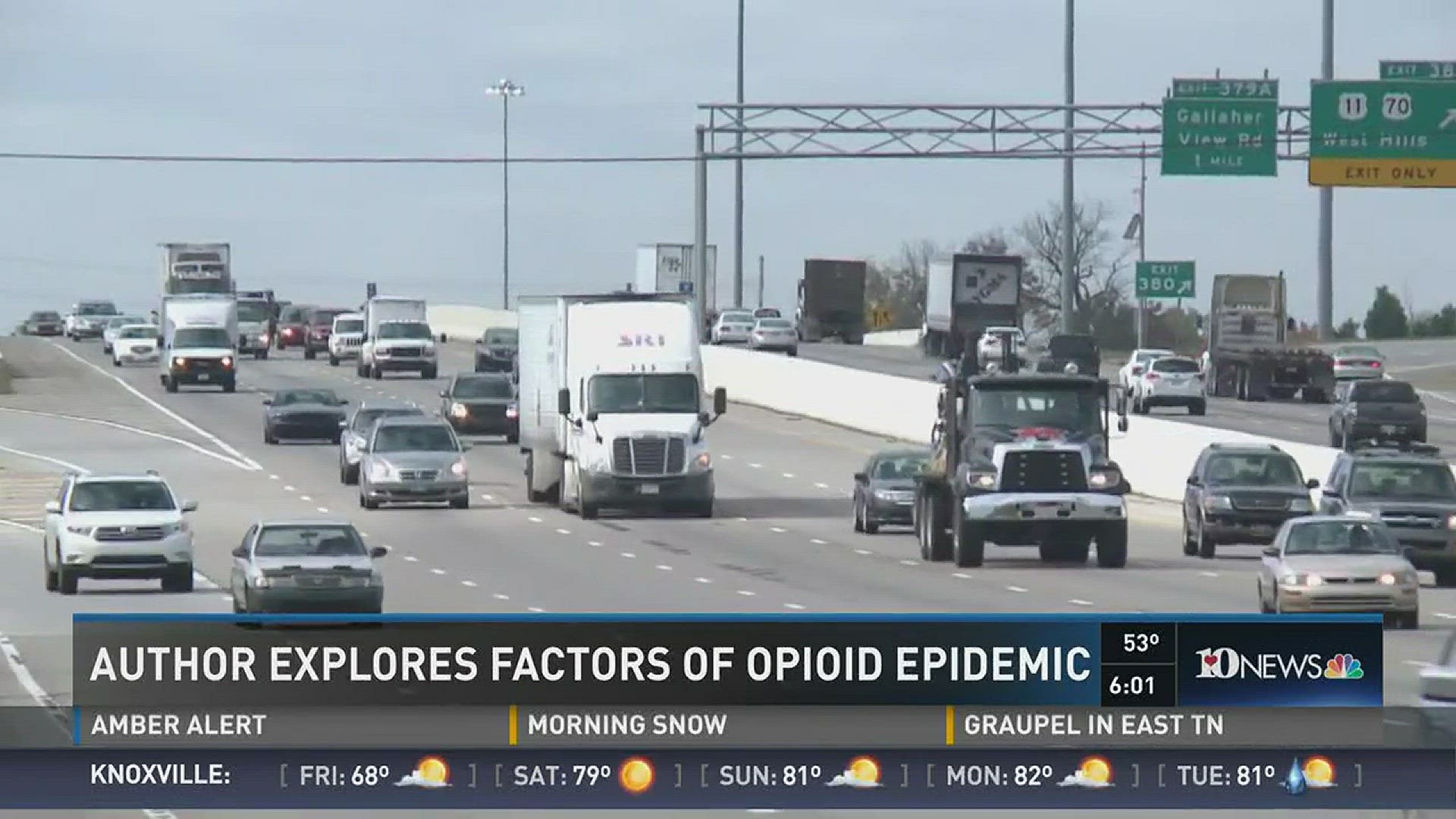A local effort to fight drug addiction is marking a milestone this year and celebrated with an event Thursday night.
Knoxville and Knox County's Metro Drug Coalition - formerly known as the Metropolitan Drug Commission - held a 30th anniversary dinner Thursday.
The keynote speaker is journalist and author Sam Quinones. He's been examining the big factors that, combined, made the nation vulnerable to the current heroin and prescription drug epidemic, which kills thousands of Americans each year.
"This is the most difficult drug to kick," Quinones told WBIR 10News in an interview Thursday morning. "Our infrastructure for treatment is - in most areas - overwhelmed."
Quinones' new book, "Dreamland: The True Tale of America's Opiate Epidemic," explored the problem's root causes.
"I wanted to put myself in the position of a parent who had lost a child and who doesn't understand why," Quinones said.
Some of the epidemic's root causes, he said, lie in the laps of corporate America.
"Pharmaceutical marketing was a huge part of why this happened," the author explained.
In writing his book, Quinones researched industry trade publications, government websites, scientific studies and other source documents.
"Pharmaceutical marketing, particularly in the late 90s and early 2000s, used the idea - spread and pushed by certain pain specialists - that opiate painkillers - Vicodin, Percocet and later OxyContin, of course - were non-addictive when used to treat pain - in every human being, apparently," he said. "The nuance got lost, and pharmaceutical companies picked that idea right up and ran with it."
Deborah Huddleston is media relations and project director with the Metro Drug Coaltion, which invited the "Dreamland" author to speak at the 30th anniversary dinner.
"If you're confused about the opiate problem that our country is facing, read this book," Huddleston said.
It examines the broader systems in place that allowed the opioid epidemic to flourish nationwide, including right here in East Tennessee.
"Knoxville's been hit hard not just with prescription drugs but also heroin," Huddleston said. "Four out of five users of prescription drugs switch to heroin, and we're right in the hub where I-40 and I-75 cross over."
More than 1,200 Tennesseans died in 2014 from opioid overdoses. According to the Tennessee Department of Health, that is almost 100 more deaths than the previous year.
And more people died that year from opioid oversdose in Tennessee than in car accidents or by gunshots.
Knox County saw the second highest numbers, with 133 deaths.
Statistics show, heroin affects people on both ends of the socio-economic spectrum.
"What's the common denominator? Isolation," Quinones said. "People are isolated in poverty. They're isolated in suburbs and prosperity. There's a disconnect. Americans are not connecting...Friends with a million people on Facebook and you don't know the guy across the street."
He said the solutions to this epidemic start with community involvement and a willingness to tackle the problem from many angles.
Check out Quinones' book "Dreamland" HERE.
More info is available on Quinones' website HERE.

